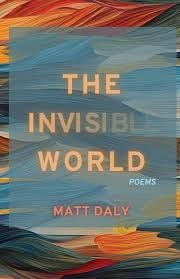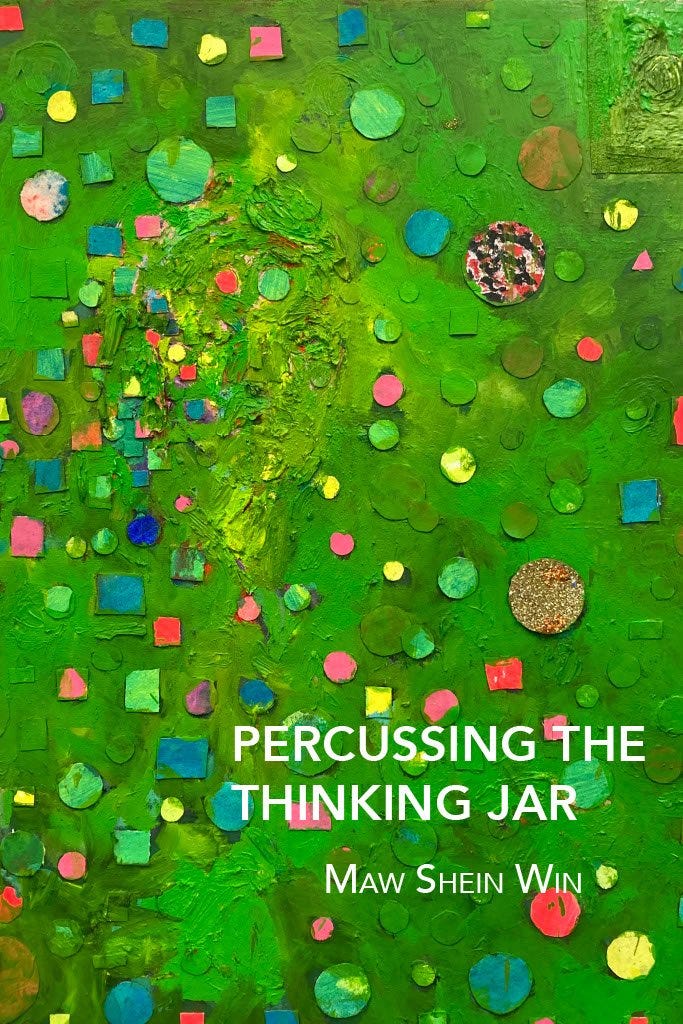Fellowship
I returned Sunday from the Jackson Hole Writers Conference. Leaving town to climb a snowy Teton Pass, I waited for a good ten minutes near the junction with the Teton Village Road while a herd of nearly fifty elk sauntered across the highway, two big bulls taking up the rear guard and standing on the road surface like generals assessing their troop movements before joining them. Clouds masked the pass but further north only the Grand poked through. It and its companions were flanked white with the early snows of the season. It seemed a fitting goodbye from a place I once called home and that has had a special hold on my heart for a good part of my life. Any time I return, however, I do so with folds creasing my heart for the billionaire-zation and love saturation of wealthy part timers that has been gaining ground for a quarter century has fortified their place in the valley, as have the Sprinter vans and the chain stores masquerading within their Western storefronts on the town square, and the designer cowboy hats.
The conference offered, to use keynote speaker Jericho Brown’s word, genuine “fellowship.” That trait has always been a hallmark of this conference, and Matt Daly, in his first year as its director, ably replacing founding director Tim Sandlin, has held to the tradition of it being a friendly, collegial, intimate conference where participants mingle and converse with its faculty and guest speakers. Fellowship remains, thank goodness, a common reality among most of the writers I know, people who pull together, support one another, cheer one another’s success and offer consoling in times of frustration or despair, a spirit in stark contrast to most professions. Lasting memories from this year for me will be the chance to get to know two familiar faces from the past at a much deeper level, nonfiction writers Matteo Pistono and Katherine Standefer. (And by the way, if you are looking for Christmas presents for the nonfiction reader in your life, you can’t go wrong with either. Matteo newest is a practical primer on breathwork and Katherine’s book is at once a fascinating memoir and a contemporary portrait, if one that will bring you to tears, of the American healthcare system. And for those looking for gifts for poetry readers, check out new collections from Matt (The Invisible World) and from conference guest Maw Shein Win (Percussing the Thinking Jar).
And returning to Jericho Brown, his Friday night keynote was nothing short of performance art. Brown is a Pulitzer Prize winning poet and was recently names a MacArthur “Genius” Fellow. He is one of those writers whose presence changes the energy in a room, a presence who seems almost unreal but who is simultaneously so vibrantly human. I could go on and on both about the surprising ways he makes language turn unexpectedly or how he has cultivated the performance of poetry in a live setting (and for a taste of that here’s a video that captures several of his poems). Yet as an audience member in very white, very privileged Jackson, WY, I become fixated on how desperately we need vehicles to cross divides and be exposed to people, places, cultures, and daily realities that are vastly different from our own. For example, as a white person, while my sympathies can align with Black experiences and be informed through the lives of Black friends and mentors, I literally cannot enter the omnipresent fear present in Black people’s encounters with the police. I can become informed about that fear in meaningful ways, can process it intellectually, can come to know both the statistics and the ubiquity of anecdotal evidence that demonstrate why fear is warranted, even necessary for survival, but I cannot live it. Great poets can help me understand. Reading the voices of lived experiences helps. The stories of friends help. But unless I inhabit some alternate universe where I am targeted by authorities as an automatic suspect or someone who cannot be trusted, I cannot actually know the day-to-day reality of Black Americans. We have to read outside the cozy confines of our mostly segregated lives, but we have to live outside those confines as well. Until we do, until we listen and connect, the divide cannot be breached. And this, of course, applies not just to racial divides but to economic and political and cultural and experiential divides as well. Those of differing opportunities. Of different access. There are no perfect solutions, but there will be no solutions if we don’t wish to love others and understand others who have experiences and realities different from our own.
I was accompanied to Jericho Brown’s reading by my friends David and Amy, and after the reading we shared delicious pizza and good conversation. I first met David when he hired me as a teacher where he was the head of the upper-school at an extraordinary pre-K through 12 private school then called Journeys. In the years since, the school changed names and just this year closed the high school, an action that I suspect is a commingling of a number of internal and external patterns that, if scrutinized, would speak volumes about current cultural, political, and educational patterns much bigger than the school itself. The original name, Journeys, reflected something central in its pedagogy, for acting upon a foundational belief in place-based, experiential education, our curriculum included three “journeys” each academic year: a fall backcountry experience, a winter field experience based out of its alternate Kelly, Wyoming “campus,” and a spring “urban” journey, one that because of Jackson’s remote, island like setting in the far northwest corner of Wyoming, typically meant a week of curriculum supported by the environs of either Salt Lake City, UT or Bozeman, MT. You might laugh at these urban locations—I did my first year—but such settings still allowed us access to partnerships that offered our students the means to study non-rural, non-tourist-based economies, urban planning, religious cultural history, social policy issues, etc. and provided access to good museums, cultural centers, indigenous organizations among others. It was one means of creating learning opportunities in the spirit of how I just spoke about the importance of exposure to people and places different than ourselves in my remarks about Jericho Brown’s work. Journeys was a special place with challenging curriculum, including being an International Baccalaureate World School, where students became eager learners and developed the grit to tackle hard lessons and the capacity to become self-accountable. They were entirely comfortable from early ages in presenting their work to their peers and to parents in public forums, in creating original research and innovative approaches to ideas, and they were adept at problem solving. It was, I must acknowledge, a tiny school with heavy resource costs, but at the time I was hired, after ten years of high school graduating classes, the school didn’t just have a one hundred percent college placement rate, it boasted a one hundred percent college matriculation rate. It developed the kinds of critical thinkers who could flourish in a rapidly changing pluralistic society. Sadly, the high school is no more, another example of things dying in Jackson Hole as it continues its inexorable march to becoming no more than a playground that is the exclusive domain of the privileged. (In full disclosure, Journeys’ students were overwhelming the children of the privileged as well, albeit children who were by parental design, more likely to become productive citizens of the world more likely to hold broad and complex visions of what “citizenry” means.)
We need more “Journeys” and we need more Jericho Browns. I’m proud to have been part of the Jackson Hole Writers Conference faculty for a dozen years now, for if we can continue to help writers find the means to express the ideas and stories that are uniquely theirs, we will have helped created one small slice in the larger body of literature that is critical to embrace of “otherness” I have argued for here.
Writing Exercise
In the spirit of Jericho Brown, I want you to think about and consider applying the idea of “opposition” in your work in progress. In Brown’s work what I’m talking about is his ability to do things like draw upon his childhood upbringing of being immersed in and surrounded by prayer, then using the language and cadence of prayer to examine parental abuse. Or how he uses the naming of flowers and then their inevitable expiration to reach the lives of Black men’s lives cut short. Opposition might be as direct as providing, in the spirit of Carol Bly, a young woman trapped in an abusive marriage a monster truck in which to make her escape. It might be as direct as identifying the source of charisma in your character who is an evil antagonist. Or it might be entirely subtle, the way that the beauty of the orange hourglass on a Black Widow spider’s belly, something you cannot see unless you turn the dangerous arachnid over, is the mark that identifies the species.
Be creative. Be generous. As with all writing prompts, there are no correct ways to act upon them, so interpret “opposition” in any way you see fit when thinking about the work that is currently obsessing you. Then create a means to exploit the opposition you identify. Confused? That’s a necessary state. Step inside your writing and the confusion will fall away.
A Shameless Appeal
In the spirit of “books make great Christmas presents,” if you have read Man, Underground and have someone else in your life you think would enjoy it, please consider ordering it as a gift (and if you enjoyed the novel, please consider one of my other books). If you’ve not read it, and you are feeling the need for a laugh, I hope you might give it a try. The link I’m providing is to purchase it directly from the publisher, for doing so offers this wonderful literary small press the highest return and offers the only means to get it in hardback (hint, hint; nudge, nudge; just change the “format” button on the order screen), but of course the book is available on bookshop.org or anywhere books are sold, or consider asking your local independent bookstore if they stock the title or will order you a copy. It’s available other places too, but I’ll just say quietly that Jeff Bezos is doing quite fine and doesn’t need more of your money. If eBooks are you jam, I think it’s a “stay-tuned” option for bookshop.org (see this article) so you might have to line Bezos’s pockets after all. (And for audiobook enthusiasts, while M,U isn’t available as an audiobook [talk to my publisher], if you’re not already aware, bookshop.org has developed libro.fm to compete with Audible, so there are still ways to support independent bookstores, have direct access to the whole catalog of books, and have them arrive right at your doorstep.)
Musical Offerings
I’m sticking with my Jericho Brown theme. The first is a band I’ve not listened to in years that he spoke of as a regular accompaniment to his writing process. The second he offered as a joke to a room filled with white people, many of whom were of a “certain age” (He took great glee in getting an audience to say Stevie Nicks name) and I offer the song in the spirit of a joke as well even if it is a song I love (and last week I offered covers, and this one has some great ones).
And lastly, just because I have to do it (don’t hold it against me), for I believe it is a writer’s job to comment on the simple observations so many miss, today, Election Day, in my class at the gym, the first song of the playlist was Springsteen’s “Born in the U.S.A.” When the instructor noted it was a day to cast our votes, the opening chorus was met with cheers by several people. Meanwhile, I was working to mask the laughter that I found building up in me, for in what seems fitting testimony to the group-speak that marks most discourse today (and an extension of my argument on patriotism from a couple of weeks ago), it was apparent that those cheering failed to know Springsteen’s lyrics or the context in which he wrote the song. I remedy that now with the lyrics (minus all but the first, oft-repeated chorus) for anyone willing to read them:
“Born in the U.S.A.”
[Verse 1]
Born down in a dead man's town
The first kick I took was when I hit the ground
End up like a dog that's been beat too much
'Til you spend half your life just coverin' up, now
[Chorus]
Born in the U.S.A.
I was born in the U.S.A.
I was born in the U.S.A.
Born in the U.S.A. now
[Verse 2]
Got in a little hometown jam
So they put a rifle in my hand
Sent me off to a foreign land
To go and kill the yellow man
[Verse 3]
Come back home to the refinery
Hirin' man says, “Son, if it was up to me”
Went down to see my V.A. man
He said, “Son, don't you understand,” now
[Interlude]
Oh yeah
No, no
No, no, no
[Verse 4]
I had a brother at Khe Sanh
Fightin' off them Viet Cong
They're still there, he's all gone
He had a woman he loved in Saigon
I got a picture of him in her arms, now
[Verse 5]
Down in the shadow of the penitentiary
Out by the gas fires of the refinery
I'm ten years burnin' down the road
Nowhere to run, ain't got nowhere to go








I love me some Jericho Brown!